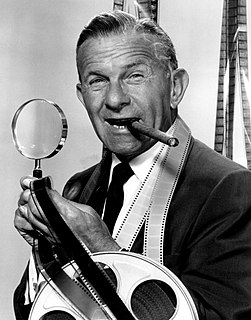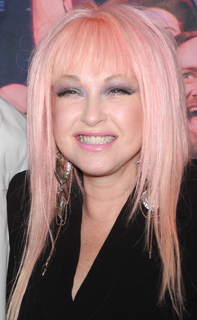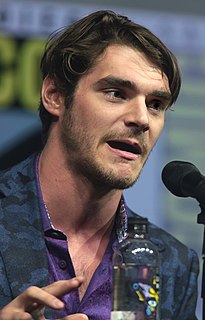A Quote by George Burns
My major contribution to the format was to suggest that I be able to step out of the plot and speak directly to the audience, and then be able to go right back into the action. That was an original idea of mine; I know it was because I originally stole it from Thornton Wilder's play Our Town.
Related Quotes
Regarding pushing the form, ideas interest me more than form. I think you can write a very subversive play in a three-act structure. The content makes the play. I feel the form is simply dressing, because ultimately, you want to communicate to the audience, and sometimes the best way to do that is to present a provocative idea in a format that is comfortable for them to receive. Then the idea will come through directly, right in solar plexus. After all, I want to make a living as an artist, and that means speaking to the audience in a form they can understand.
I've always been making original music. I think that when I sat down with Losing Focus, I approached it different. I had a clearer understanding of who I was talking to, because I was able to go out and tour and see them right in front of me. I wanted to speak to them and speak about this lifestyle.
Everyone's gotta have a voice, to be able to speak out. Left supresses right, right supresses left, and what's left and what's right? You know? It's America. You gotta be able to speak out. That's why people came here from all over the world: to have a fair shake. Not more than somebody else - the same.
I always like to break out and address the audience. In 'The History Boys', for instance, without any ado, the boys will suddenly turn and talk to the audience and then go back into the action. I find it more adventurous doing it in prose than on the stage, but I like being able to make the reader suddenly sit up.
It's just nice to be able to communicate and be able to identify with a lot of different cultures. I have no idea what it would be like to be just one thing and speak one language. I feel enormously privileged to travel and be able to mingle and speak to people that, had I only known English, I wouldn't have been able to meet.
There's always advantages and disadvantages to doing any role. And there's a great sense of achievement, testosterone, fun, being able to live out your masculinity when you play an action role, or an action-adventure, or a real tough-guy role. Really, if you're doing a comedy, you can sit back and relax. And it's good to know that at the end of the day, you don't have to run off for another two hours and go to the gym, or go spend the rest of the night swordplaying with stunt guys. Then I think, "Oh my God, I love comedy.".
When we let go of wanting something else to happen in this moment, we are taking a profound step toward being able to encounter what is here now. If we hope to go anywhere or develop ourselves in any way, we can only step from where we are standing. If we don't really know where we are standing—a knowing that comes directly from the cultivation of mindfulness—we may only go in circles, for all our efforts and expectations. So, in meditation practice, the best way to get somewhere is to let go of trying to get anywhere at all.
And, you know, being able to wear the stars and stripes, when you step up on one of the blocks or, you know, when you step off of an airplane or when you hear the national anthem play, you know, it's one of the greatest feelings in the world because you know that there are people at home who are supporting you and watching you.
It's just part of whatever motivates guys and whatever they say. Ultimately it comes down to how well you play. What I've learned over the years, a lot of guys talk. What you need to do is go out there and play, back it up. They've been able to back it up, so that's why it works for them. Hopefully we can go out there and do our talking on the field.

































